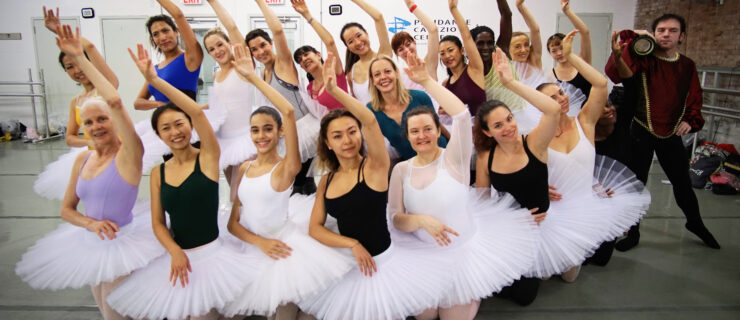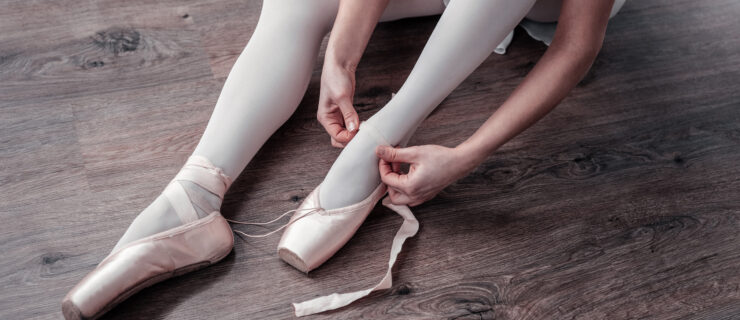Ballet Jörgen’s “Boys Who Dance” Campaign Helps Young Danseurs With Virtual Mentorships
Being a boy in ballet isn’t always easy. We all remember what happened on “Good Morning America” a few years ago, when co-host Lara Spencer made fun of England’s then–6-year-old Prince George for taking ballet classes. Canada’s Ballet Jörgen recently launched an international initiative, Boys Who Dance, to offer more emotional support to young danseurs. Through town halls and one-on-one virtual mentorships, which are open to dancers around the world, the program aims to help students overcome bullying, negative stereotyping and other challenges they may face during their training.
“This initiative will hopefully raise the visibility of male dancers and let boys know that it’s okay to dance,” says Ballet Jörgen company member Callum McGregor. “There’s still such a stigma—people still believe boys shouldn’t be dancing. We audition in loads of cities when we’re on tour, and we just don’t see that many boys.”
The campaign’s mentorship program allows students ages 9 to 17 to be paired with one of Ballet Jörgen’s seven male professional dancers. To prepare, the company members received mentorship training from Nicole Inica Hamilton, a certified dance educator and counselor. Students meet virtually with their mentor once a week, for as long as they need.
“It’s been such a rewarding experience,” says McGregor, who recently finished working with his first student. “Anything they want to talk about is on the table—technique, bullying at school.” Even with more general issues, he says, like learning how to balance dance with schoolwork, it can be helpful to have a male role model to talk to. “One of the things I try to get across is that you’re not the first person and you’ll never be the last person to go through this, so know that you’re not alone.”
In addition to bullying, McGregor and his colleagues notice a heightened sense of isolation for many students. Often they are the only boy, or one of very few, in their class, especially those training in small, local studios. They frequently lack male teachers, too. “A lot of boys feel singled out and kind of alone,” says McGregor. “Sometimes they aren’t getting enough exposure to specialized training they need.”
He adds that there are other important topics that young danseurs need help with, such as a lack of family support and body insecurity. He recalls his own painful experience, in which teachers told him he didn’t have the right body for dance. “I wasn’t overly tall, and at the time I was a little chubby. I can come across as quite feminine. I often felt like I had to try to be someone else.”
Ballet Jörgen’s first Boys Who Dance town hall, held virtually last month on YouTube and Facebook, featured mental health experts, plus guests from the National Ballet of Canada, Ballet BC and George Brown Dance. (The wide-ranging discussion is free and available for anyone to watch on both platforms.)
“It was great to see that many male dancers come together to talk about the issues boys experience,” says McGregor. “It brought up a lot of emotions. But it was good to be able to tell our stories, so that dancers know that there’s someone there.” McGregor’s biggest piece of advice for those being bullied? “Find your support group, whether that’s your family or your chosen family. Surround yourself with as many people that love you for just being who you are.”
The company plans to launch more town halls throughout the year to keep the conversation going and provide resources for dancers, parents and teachers. McGregor hopes the initiative can make a real difference: “We just want to just raise everyone up as much as we can and give them the platform to be able to do what they want.”





